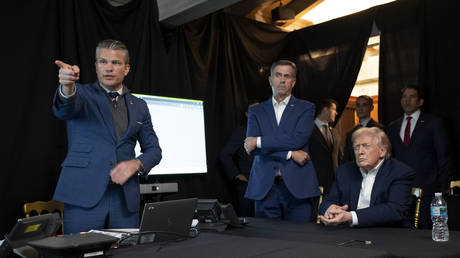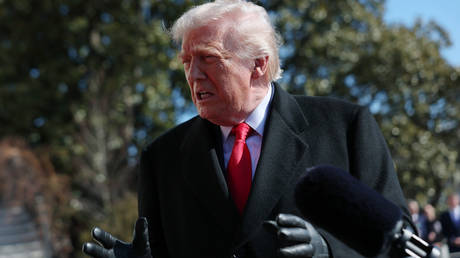
Washington’s incentives for green businesses would make the European economy less attractive for investors, the French leader said
The new US incentive scheme, which aims to subsidize local electric car makers, risks driving a wedge between Western countries, French President Emmanuel Macron warned on Wednesday amid looming fears of a trade war between America and Europe.
The US Inflation Reduction Act (IRA) offers $391 million of incentives to promote clean energy, including support for electric vehicle manufacturers.
Speaking at the French embassy in Washington, Macron said the scheme would have a negative impact on Europe by making it less attractive for businesses to invest in the continent’s economy.
“The choices of the past few months, in particular the IRA, are choices that will fragment the West,” he said, adding that the EU and the US need “to co-ordinate and re-synchronize our policy agendas.”
Meanwhile, during a meeting with US lawmakers from both parties, Macron described the economic plan as “super aggressive” towards European companies, according to an unnamed Reuters source.
“You will perhaps fix your issue, but you will increase my problem,” he added, as quoted by AFP, warning that the US incentive could “kill a lot of jobs.”
Meanwhile, on Wednesday, when asked about European concerns about the act, White House Press Secretary Karine Jean-Pierre claimed it “presents significant opportunities for European firms as well as benefits to EU energy security,” adding that “this is not a zero-sum game” for the US, and Washington seeks a “constructive path of engagement” with the EU on the matter.
In recent months, the Inflation Reduction Act has been a particularly thorny subject in transatlantic relations, with various EU leaders arguing that it discriminates against Europeans as it could give American electric vehicle manufacturers an advantage over their EU counterparts in the lucrative US market.
While the EU and US are attempting to resolve their differences, Bernd Lange, the chair of the European Parliament’s trade committee, warned that when the scheme enters in force in several weeks, it will be too late for the parties to negotiate any changes to the legislation. He added that, should this happen, the EU would likely lodge a lawsuit against Washington with the World Trade Organization.




